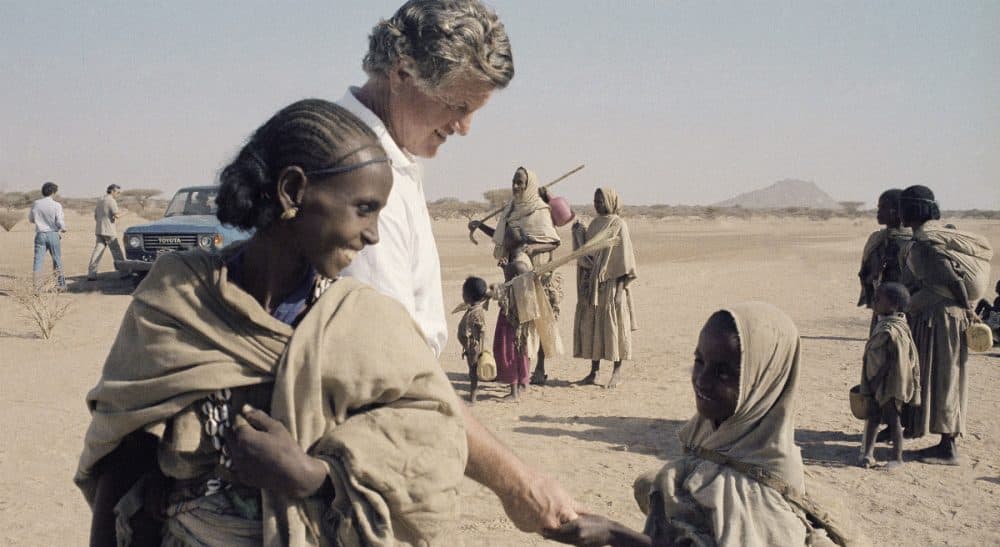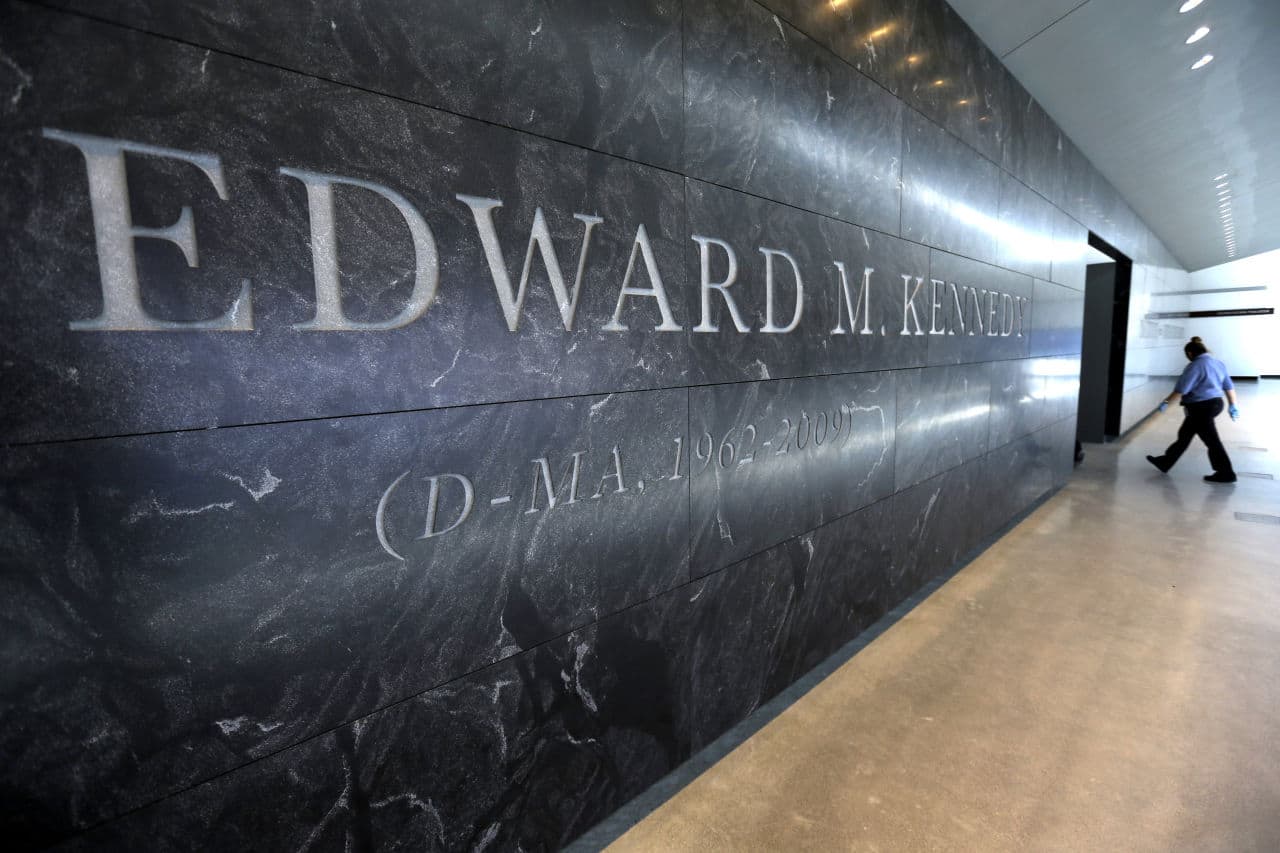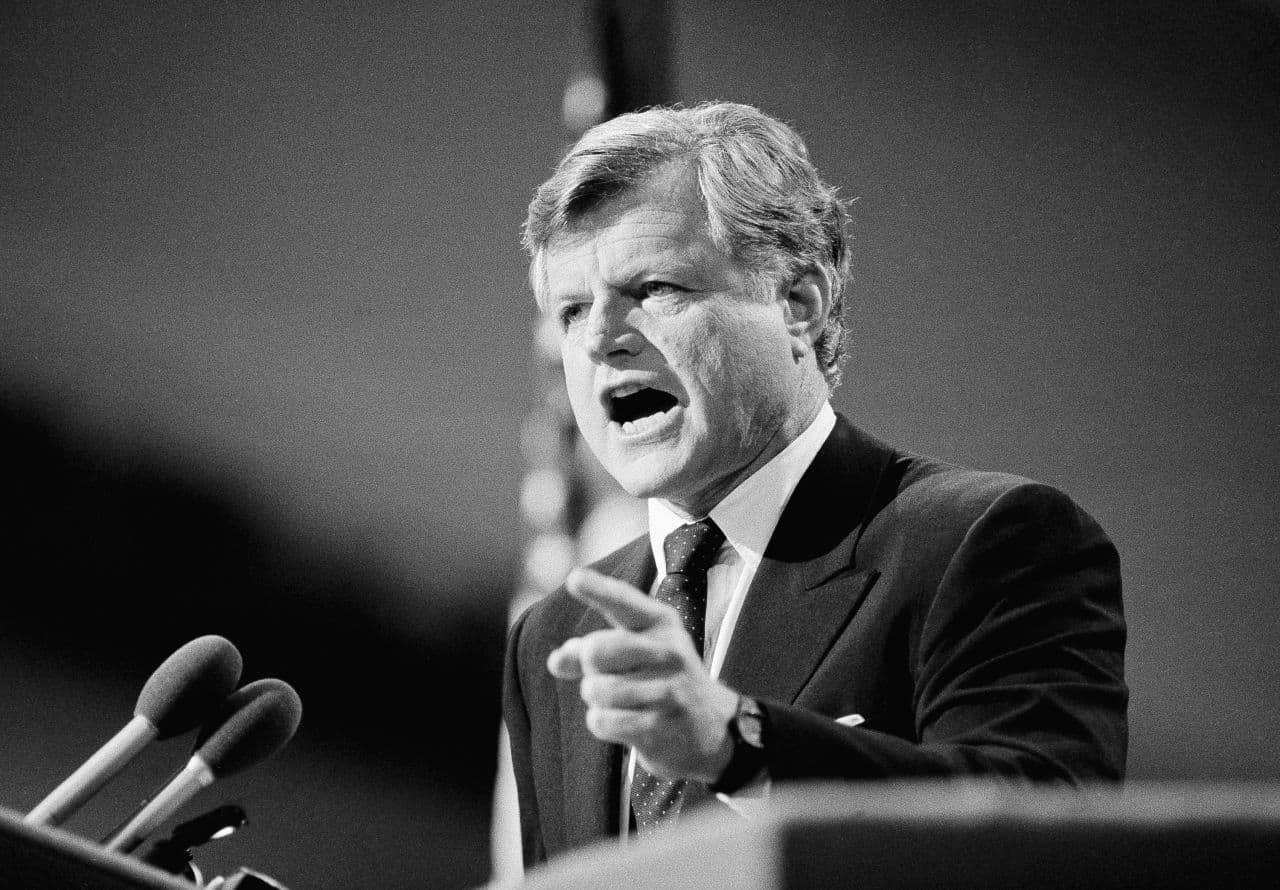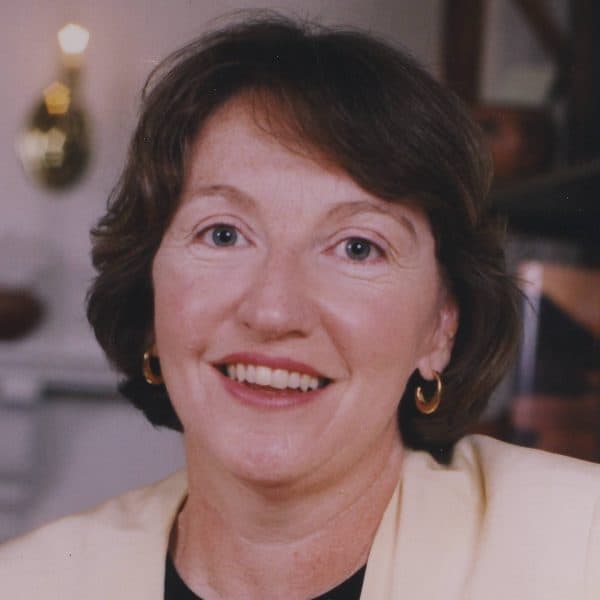Advertisement
It's Not About Us: What Ted Kennedy Taught Me In An African Desert 30 Years Ago

Every third person in Massachusetts must have a Ted Kennedy story. How could it be otherwise, given the Democratic stalwart’s 47-year reign representing the state in the United States Senate?
If he was not everywhere, he certainly seemed to be and his staff actually was, resolving a retiree’s Social Security problem, arranging a private plane to fly a terminally ill boy to Seattle for experimental cancer treatment, helping the families of 9/11 victims adjust to life in a tragically altered world.
If he was not everywhere, he certainly seemed to be...
When the Edward M. Kennedy Institute for the United States Senate opens Monday in Boston, dignitaries from President Obama to Arizona Sen. John McCain will recall the youngest of Joseph P. and Rose Fitzgerald Kennedy’s nine children as the “liberal lion” of the Senate, a Democrat who reached across the aisle to build the kind of bipartisan coalitions we rarely see now. They will call him a legislative craftsman, a champion of the poor, a joyful dad, a peerless uncle to his slain brothers’ fatherless children, a garrulous friend and an unabashed lover of his dogs and the open sea.
He was all those things, of course, but the mission of the new institute on Columbia Point celebrates what Ted Kennedy also was -- a teacher. The pied piper who led the younger generation of Kennedys on regular pilgrimages to America’s most storied historical sites. The Senate’s informal historian who reminded his colleagues before their misguided vote authorizing a preemptive strike against Iraq that, when war had seemed inevitable during the Cuban Missile Crisis, diplomacy charted a different course. The seasoned lawmaker who tapped his own career-long fight for universal health care to help Obama win passage of the Affordable Care Act.
He tutored me, as well.

My own Ted Kennedy story unfolded on Christmas 30 years ago in sub-Saharan Africa. He was the state’s senior senator. I was The Boston Globe’s neophyte congressional correspondent. I had covered his floor speeches, called him for comment when the occasion warranted, sometimes shared the row with him on the New York Air shuttle up to Boston on Friday nights. I kept a professional distance, in the manner of most post-Watergate reporters trained to be wary of those with power. (My colleague, Susan Trausch, and I went out for burgers the night the boys in the Washington Bureau decamped to Kennedy’s house in McLean for the senator’s birthday party.)
I did not expect the reporting dynamic to be much different when, in December of 1984, Kennedy and staffers from the Senate subcommittee he chaired on Immigration and Refugee Affairs flew to Ethiopia to investigate famine conditions that had just been exposed by the BBC. I went along, too.
A young career covering Boston homicides, the annual opening of Sullivan’s on Castle Island and Bill Bulger’s Massachusetts Senate had not prepared me for the scenes we encountered on the drought-stricken Horn of Africa.
A young career covering Boston homicides, the annual opening of Sullivan’s on Castle Island and Bill Bulger’s Massachusetts Senate had not prepared me for the scenes we encountered on the drought-stricken Horn of Africa. I did as directed when Leonard Lefkow, a former Associated Press reporter turned U.S. Foreign Service officer, warned me not to cry as I watched dozens of children being wrapped in empty grain sacks for burial in shallow graves scratched by hand in the sand. “It’s not your tragedy,” he said. “You get to fly out of here.” I followed the instructions of the Red Cross nurse who told me not to let the hollow-eyed mothers in the refugee camps hand me their babies. “They’re already dead,” she said. “If you take them, you are giving those mothers false hope.”
My detachment cracked on the northern border with Sudan where our small party had traveled by Land Rover to confirm reports that thousands of refugees fleeing Ethiopia were overwhelming a relief station manned by Doctors Without Borders. Long before we saw the camp, we saw the refugees, endless lines of mostly women and children streaming across the white hot desert, many collapsing and dying where they fell.
Sudanese soldiers tried to turn them back but the river of humanity kept coming, unaware that there was neither water nor food to sustain them in a parched landscape that recognized no man-made borders.
“Back in the jeeps,” Kennedy barked after an hour of conversation with a French doctor and a Canadian nurse established that things were even worse than they appeared. The first American transport plane to airlift emergency supplies into Sudan that week had carried only water containers and tents. The only delivery on Christmas Day was 6,000 pairs of purple trousers from a relief agency, offering what it had.
I was incredulous. “He’s just going to drive away,” I all-but-shouted at Jerry Tinker, the senator’s aide and a tireless worker on behalf of the world’s dispossessed until his death in 1995. Behind me, I heard the unmistakable voice of the senator, himself. “Let’s take a walk,” he said, leading me out into the desert away from the arriving refugees. If he did not seem shocked by what we were seeing, he said, it was because he had seen it before. In Bangladesh. In Vietnam. In Cambodia.
'This is the job,' he said, sternly but not without compassion. 'It isn’t about you and it isn’t about me.'
“This is the job,” he said, sternly but not without compassion. “It isn’t about you and it isn’t about me. You write about it. Maybe your story moves someone. I go back to the Senate and maybe I convince my colleagues to release enough money to help fix it. That’s what we can do. What we can’t do is fit them all in the Jeep.”
That Christmas night, the pilot of the small plane that had flown us into Sudan took me up alone to use his radio to patch me through to The Boston Globe so that I could dictate my report about what was unfolding on the ground.
Later, back in Khartoum, Ted Kennedy strode across the hotel lobby, clutching a batch of telexes he had just received from his Washington office. “I’ve just been reading the dispatches you’ve been sending and I can’t help but notice that I get barely a mention,” he said.
That’s true, I replied. “This story isn’t about us, remember? You taught me that.”

